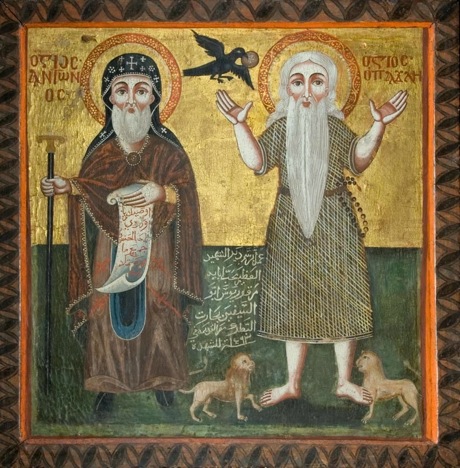Two monks lived together for many years without a quarrel. One said to the other, “Let’s have a quarrel with each other, to understand better the ways of other men.” The other answered, “I don’t know how a quarrel happens.”
The first said, “Look here, I put a brick between us, and I say, ‘That’s mine. Then you say, no, it’s mine.’ That is how you begin a quarrel.” So they put a brick between them, and one of them said, “That’s mine.” The other said, “No, it’s mine.” The first monk answered, “Yes, it’s yours. You may take it away.”
They were unable to argue with each other.
— A story from the early Abbas. (1) See also self-reflection.
“It is not possessing something that is harmful, but being attached to it.”
– Abba Zosimos (Egypt, c. 474 AD)

(1) The Abbas–also called the Desert Fathers and Mothers–were early Christian leaders in the 3rd to 6th centuries living mainly in the desert of Egypt. People would travel from far and near to seek guidance and listen to their wisdom. The Abbas were wise because they were committed to living simply, spending significant time with God, and seeking Jesus in every moment and action of life, large or small.
[…] The Abbas–also called the Desert Fathers and Mothers–were early Christian leaders in the 3rd-6th centuries. People would travel from far nd near to seek guidance and listen to their wisdom. The Abbas were wise because they were committed to spending significant time with God, and seeking him in every moment and action of life, large or small. For more Abba wisdom, see also how not to argue. […]
Loved this post. Thanks Brad!
[…] (1) The Abbas–also called the Desert Fathers and Mothers–were early Christian leaders in the 3rd to 6th centuries living mainly in the desert of Egypt. People would travel from far and near to seek guidance and listen to their wisdom. The Abbas were wise because they were committed to living simply, spending significant time with God, and seeking Jesus in every moment and action of life, large or small. For more wisdom of the Abbas, see also self-reflection and how not to argue. […]